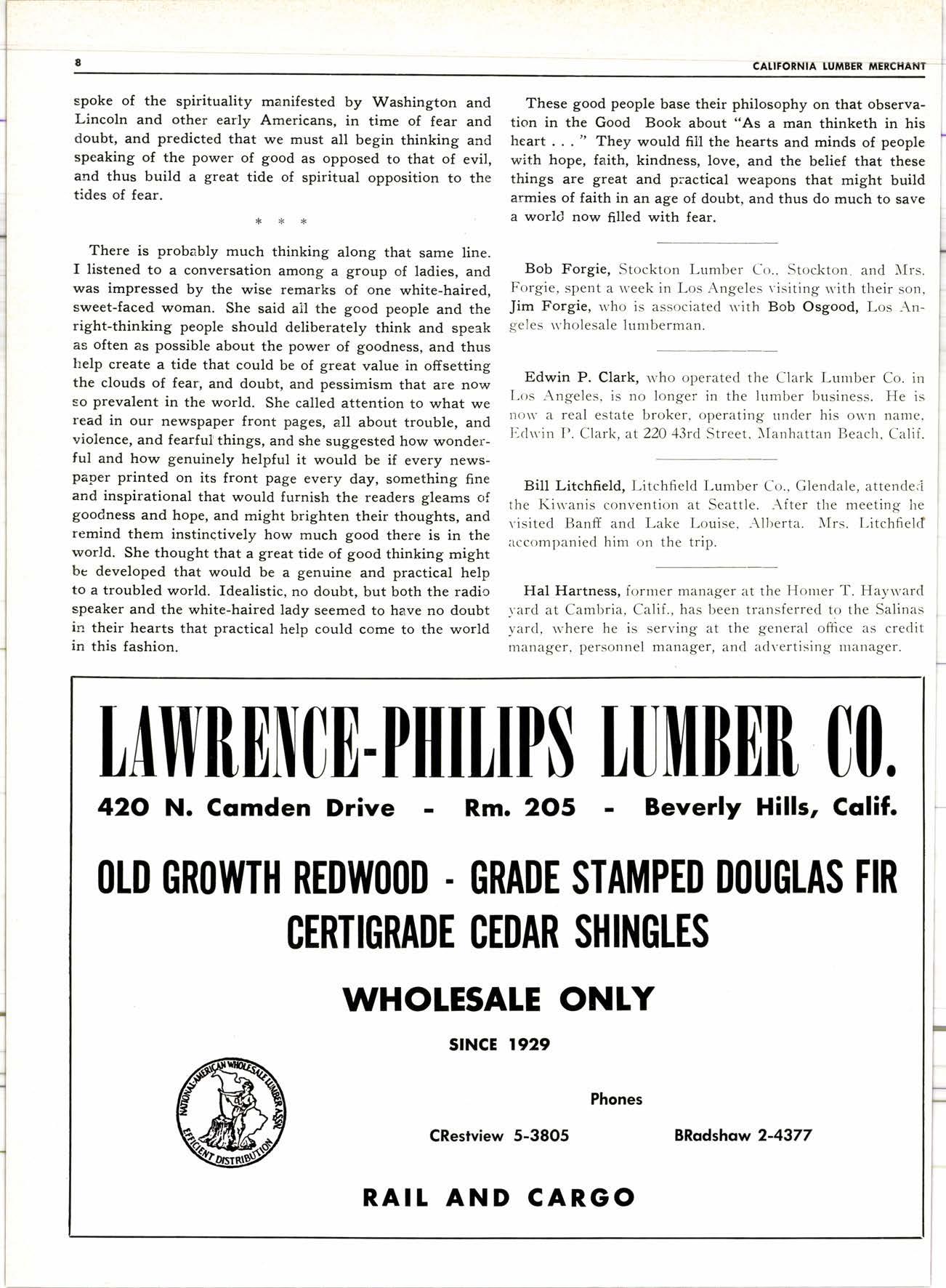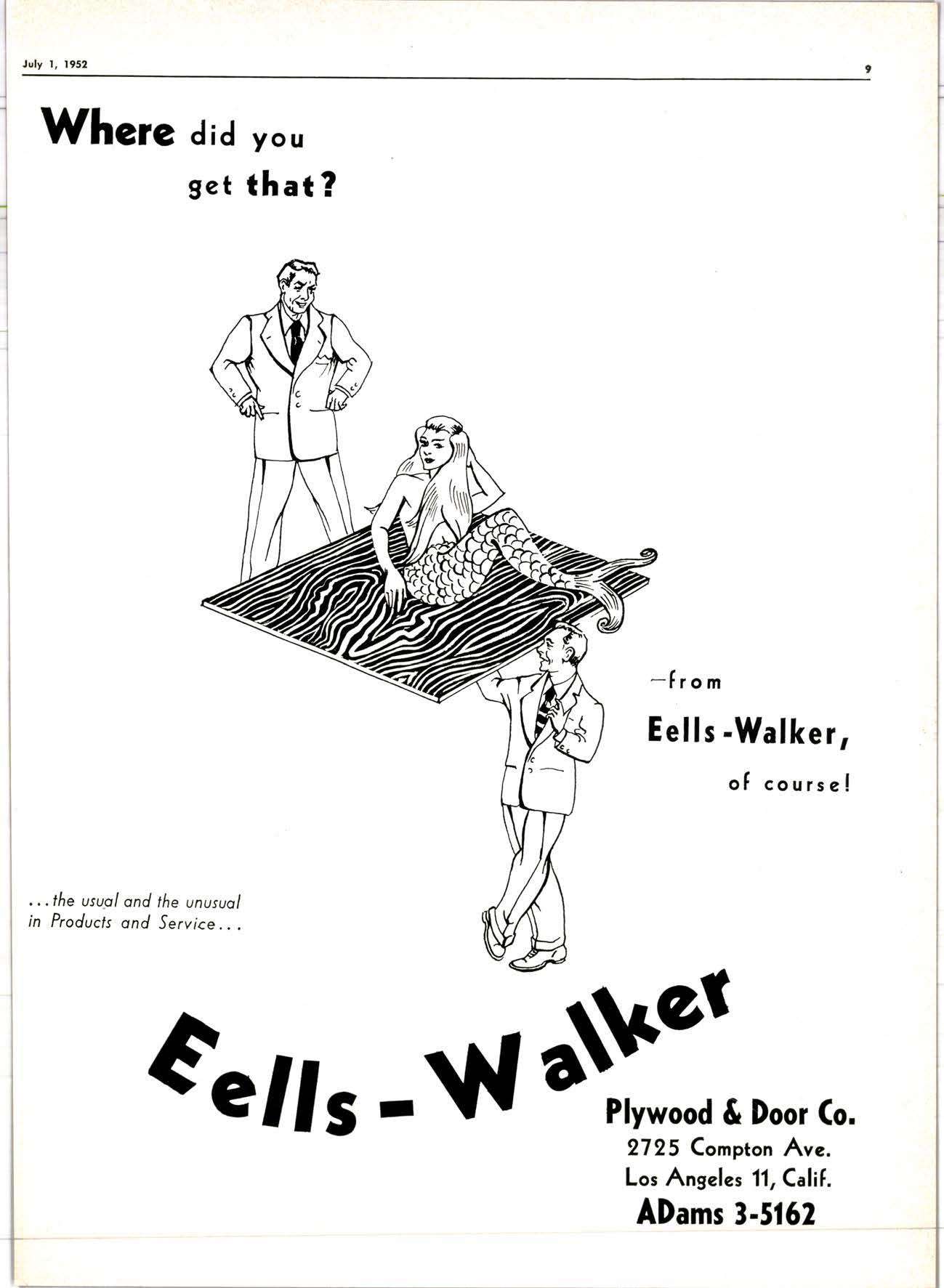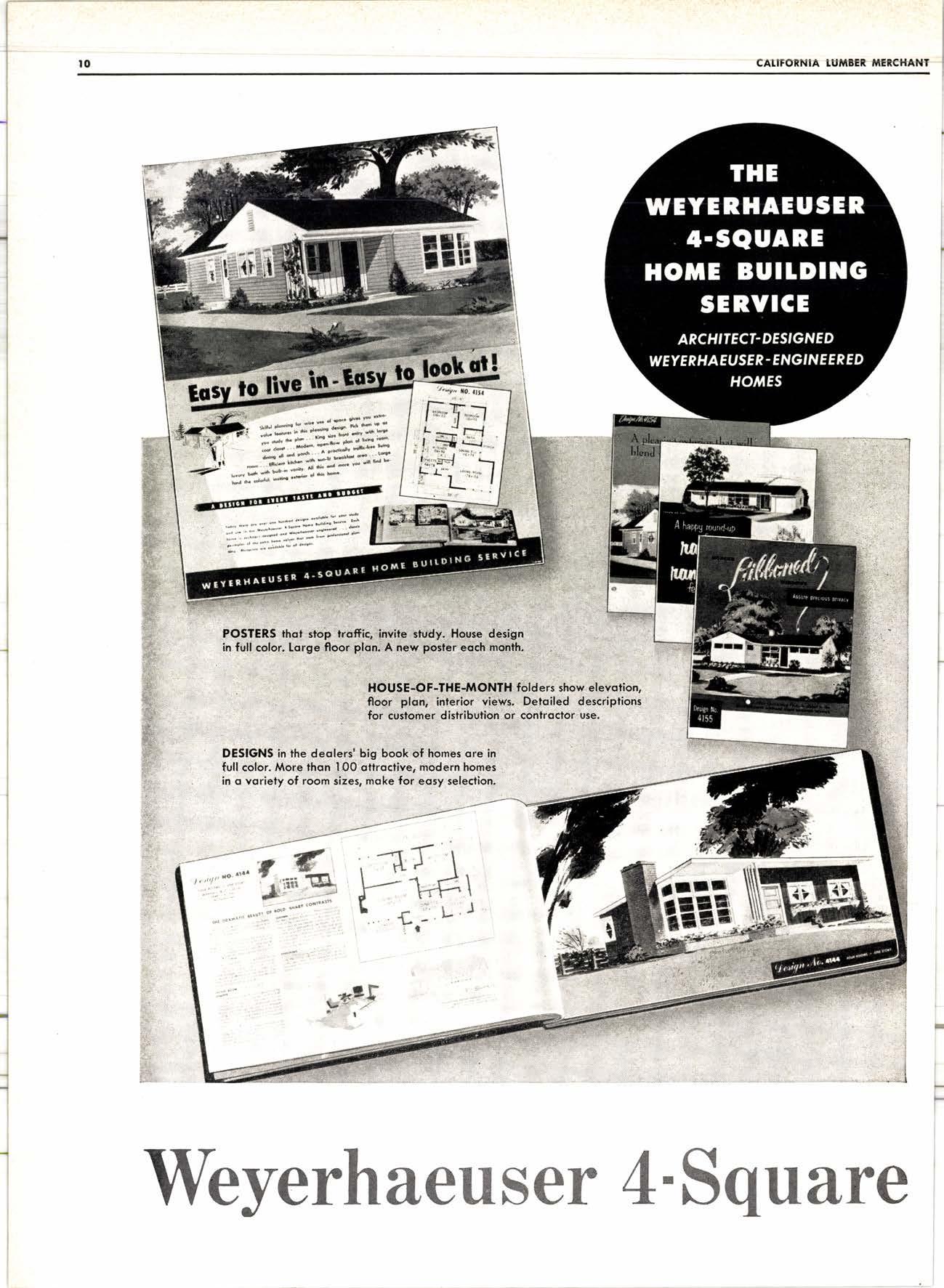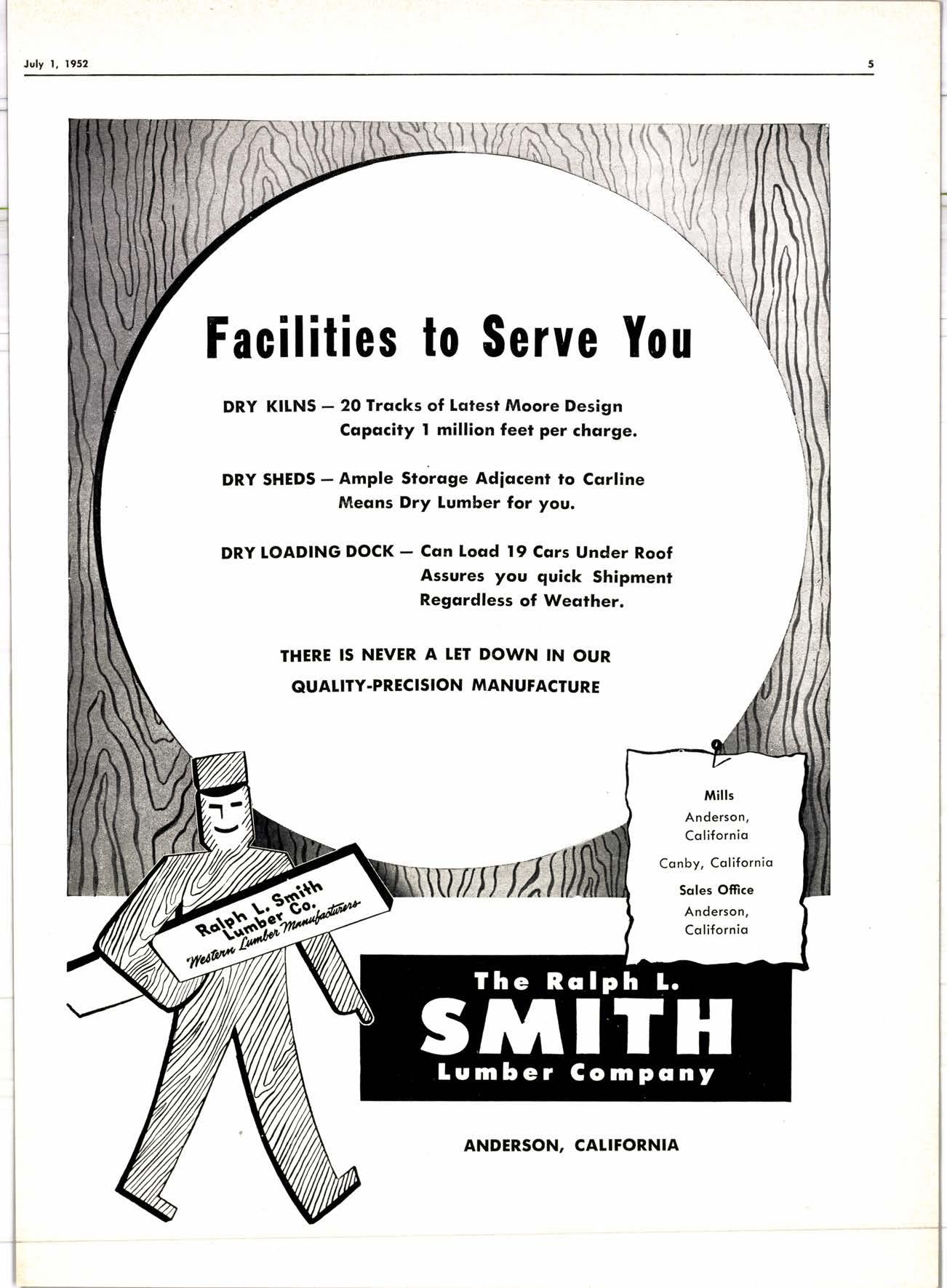
6 minute read
FaGilitie$ to $erue You
DRY KILNS20 Trqcks of Lstesl Moore Design Copocity I million feet per chorge.
DRY SHEDS - Ample Storoge Adiocent to Cqrline Meqns Dry lumber for you.
DRY IOADING DOCK - Gqn Lood 19 Cqrs Under Roof Assures you quick Shipmenl Regordless of Weofher.
THERE 15 NEVER A tET DOWN IN OUR QUATITY.PRECISION MANUFACTURE
Mills
Anderson, Colifornio
Conby, Colifornio
Soles Office iAnderson, Colifornio
ANDERSON, CALIFORNIA
AND WILLIE WILL GO TO SLEEP rN Hrs owN LrlTL;E ROOM AGArN ."
Those two lines from the great World War Two English song, were coming in over the air the other night, and what memories they brought. They are part of the inspired and inspiring British song "The White Cliffs of Dover," and there was terrific heart-pull in those lines. Willie was one of the little London kids, evidently, who had been moved to safer territory, away from the horror of the blitz. And in that chorus there was the mighty yearning of a nation for the days when peace would return, "tomorrow when the world is free."
*t<* peace, but there is no peace," again rang true, this time taking in not a nation, but a suffering world. And again the philosophy of the great Scottish plowboy, Burns, to the end that "the best laid schemes o' mice and men, gang aft a'gley" could be freely and truthfully quoted. Nightmarish is the word that has been spoken and written countless times of late to describe the world situation of the present. Could anyone have foreseen or predicted that such a thing could be? Civilization seems to be sitting on a powder keg, and the men who love peace rub their eyes in unbelief. All the pain and sacrifice of a terrific war seem to have gone for naught. Men are as puzzled as they are shocked by this nightmarish thing that has come so unexpectedly upon us.
There was no room then in the hoping hearts of the free world for even a shadow of doubt that when their great fight was won and their limitless sacrifices were over, peace would come to their troubled land; peace that would have no ending. ft was impossible to think otherwise. The black shadow of Hitler was doomed some day to disappear, and again the good people of the world would see the bright light of freedom, and peace, and happiness, and safety.
How far wrong that opinion was, we know all too well today. The war did end, and it seemed as though the ambiticns of the free world were bound to be attained, and Willie would go to sleep in his own little room again. Willie did, no doubt, go back home. But it proved to be a home over which another black shadow was already creeping before the sound of the guns and planes in World War Two had died away. The peace that came with the end of the shooting war was a nightmarish sort, and it is with us today, overshadowing all other l"Tu" thoughts and emotions.
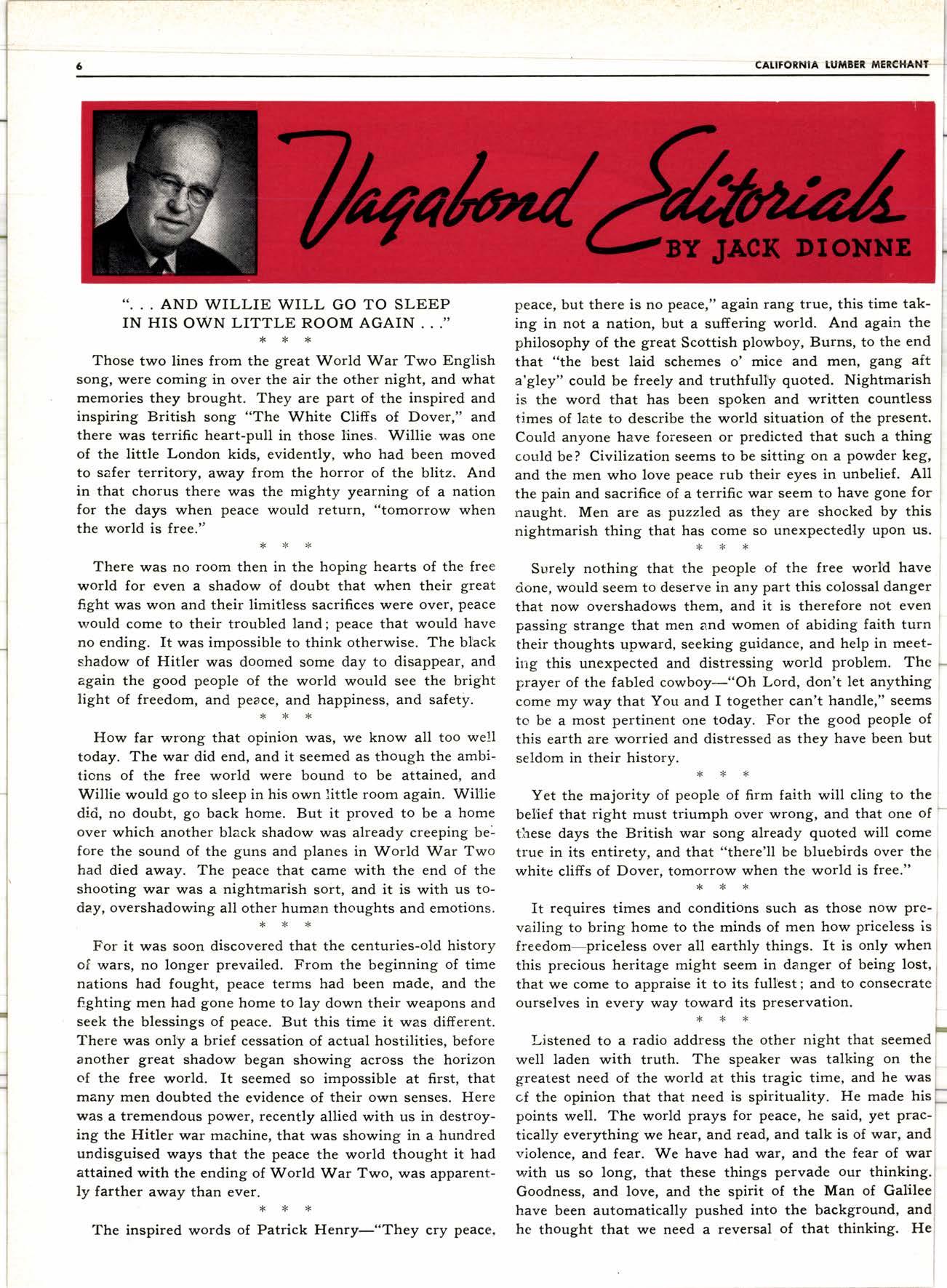
For it was soon discovered that the centuries-old history of wars, no longer prevailed. From the beginning of time nations had fought, peace terms had been made, and the fi.ghting men had gone home to lay down their weapons and seek the blessings of peace. But this time it was different. l'here was on$r a brief cessation of actual hostilities, before another great shadow began showing across the horizon of the free world. It seemed so impossible at first, that many men doubted the evidence of their own senses. Here was a tremendous power, recently allied with us in destroying the Hitler war machine, that was showing in a hundred undisguised ways that the peace the world thought it had attained with the ending of World War Two, was apparently farther away than ever.
The inspired words of Patrick Flenry-"1hey cry peace.
Surely nothing that the people of the free world have done, would seem to deserve in any part this colossal danger that now overshadows them, and it is therefore not even ] passing strange that men and women of abiding faith turn I their thoughts upward, seeking guidance, and help in meeting this unexpected and distressing world problem. The ir prayer of the fabled cowboy-"Oh Lord, don't let anything come my way that You and I together can't handle," seems to be a most pertinent one today. For the good people of this earth are worried and distressed as they have been but seldom in their historv.
Yet the majority or o.Jnt. of lr- t"itt will cling to the belief that right must triumph over wrong, and that one of these days the British war song already quoted will come true in its entirety, and that "there'll be bluebirds over the white cliffs of Dover. tomorrow when the world is free."
It requires times and conditions such as those now prevailing to bring home to the minds of men how priceless is freedom-priceless over all earthly things. It is only when this precious heritage might seem in danger of being lost, that we come to appraise it to its fullest; and to consecrate ourselves in every way toward its preservation.
Listened to a radio address the other night that seemed well laden with truth. The speaker was talking on the greatest need of the world at this tragic time, and he was of the opinion that that need is spirituality. He made his points well. The world prays for peace, he said, yet practically everything we hear, and read, and talk is of war, and violence, and fear. We have had war, and the fear of war with us so long, that these things pervade our thinking. Goodness, and love, and the spirit of the Man of Galilee have been automatically pushed into the background, an he thought that we need a reversal of that thinking. He
4 urdl-/?-&rn .u4rnp ia thp UeJt--
4 utell-luaun, aaan da Aurr/teh the best in
Fir Pine
Redwood - Red Cedar
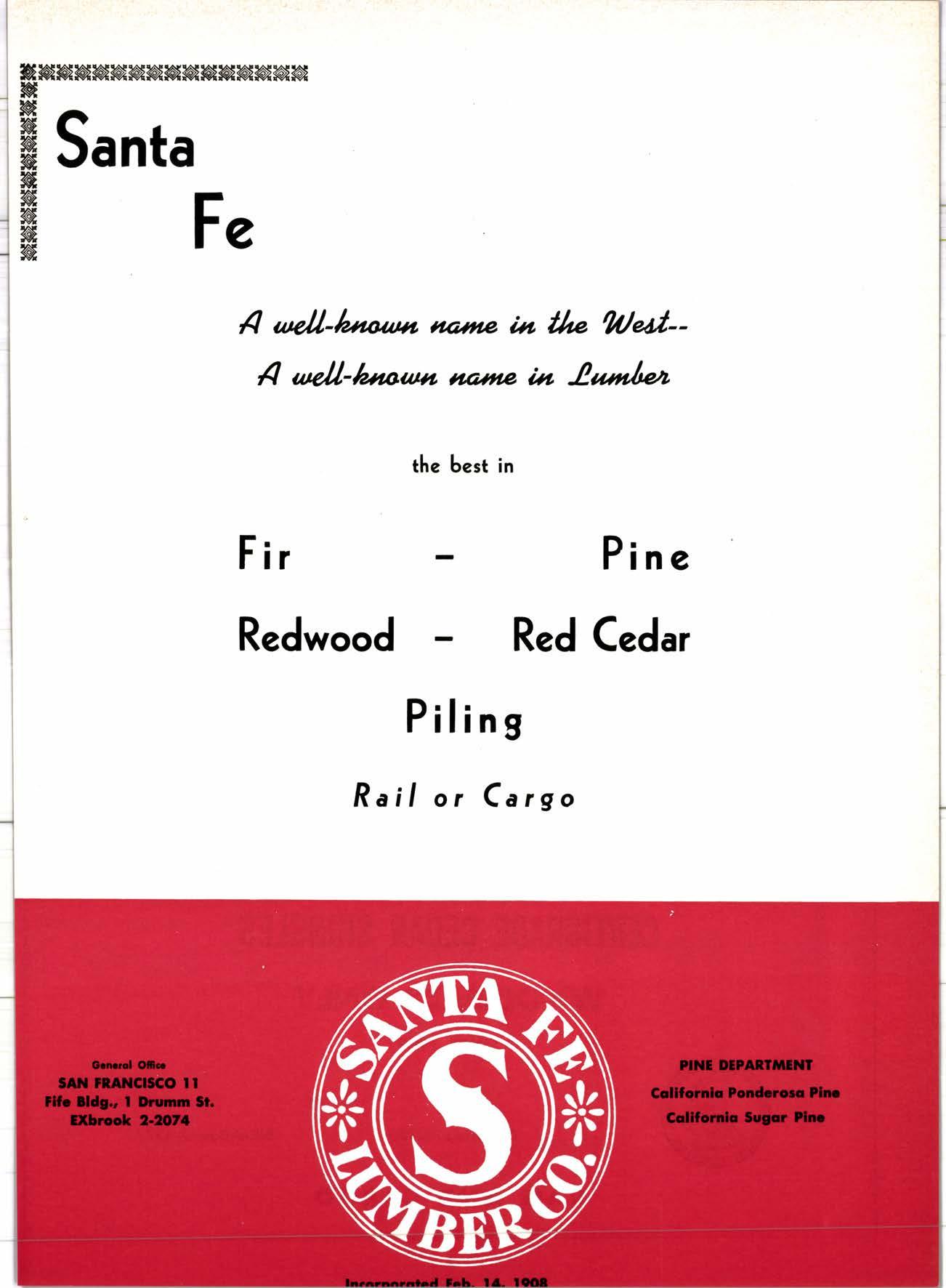
Pilins
Rail or Cargo
spoke of the spirituality manifested by Washington and Lincoln and other early Americans, in time of fear and doubt, and predicted that we must all begin thinking and speaking of the power of good as opposed to that of evil, and thus build a great tide of spiritual opposition to the tides of fear. ***
There is probably much thinking along that same line. I listened to a conversation among a group of ladies, and was impressed by the wise remarks of one white-haired, sweet-faced woman. She said all the good people and the right-thinking people should deliberately think and speak as often as possible about the power of goodness, and thus help create a tide that could be of great value in offsetting the clouds of fear', and doubt, and pessimism that are now so prevalent in the world. She called attention to what we read in our newspaper front pages, all about trouble, and violence, and fearful things, and she suggested how wonderful and how genuinely helpful it would be if every newspaper printed on its front page every day, something fine and inspirational that would furnish the readers gleams of goodness and hope, and might brighten their thoughts, and remind them instinqtively how much good there is in the world. She thought that a great tide of good thinking might be developed that would be a genuine and practical help to a troubled world. Idealistic. no doubt. but both the radio speaker and the white-haired lady seemed to have no doubt in their hearts that practical help could come to the world in this fashion.
These good people base their philosophy on that observation in the Good Book about "As a man thinketh in his heart . " They would fill the hearts and minds of people with hope, faith, kindness, love, and the belief that these things are great and practical weapons that might build armies of faith in an age of doubt, and thus do much to save a world now filled with fear.
Bob Forgie, Stockton Lumber Co., Stockton. and l{rs. Forgie, spent a r,veek in Los Angeles lisiting u'ith their son, Jim Forgie, u'ho is associated l'ith Bob Osgood, Los Angeles u'holesale lumberman.
Edwin P. Clark, n'ho operated the Clark Lumber Co. in Los Angeles, is no longer in the lumber business. He is no\\' a real estate broker, operating under his o'\'n namc, Ifcls'in P. Clark, at22O 43rd Street, Xlanhattan Beach. Calif.
Bill Litchfield, Litchfield Lumber Co., Glendale, attenderi the Kirvanis convention at Seattle. -\fter the meeting he visited Banfi and Lake I-ouise. -\lberta. Nfrs. I-itchfield accompanied him on the trip.
Hal Hartness, former manager at the Homer T. Hayu,ard lard at Cambria, Calif., has been transferred to the Salinas varcl, 'n'here he is serving at the general ofhce as credit manag'er, personnel manager, and adlertising manager.
